Why do I feel guilty for signing off work on time?
First thing first: Is it bad to leave work on time? Absolutely not.
Should you stay late at work for no reason? Did I already write absolutely not? Oh well, because absolutely not is the correct response.
You’re looking around wondering what people are thinking about when you left work on time yesterday. Some might even say you left “early”.
While working from home and shelter-in-place orders, if you are anything like me, you’re looking at your Skype IM/Microsoft Teams/Slack channels to check if anyone else is on. Will they notice if you go “Inactive” at the end of the workday? Should you work longer in the day because now there is “more time” to work?
It’s natural to strive to give your all to an employer, we all want to be recognized. So, we show up early, leave late and even take our work home with us.
I have experienced these effects firsthand and I want to share the strategies I use to put myself and my goals first, while still killing it in the office!
You don’t have to sacrifice building your side hustle for staying a top-performing employee. I’m here to say, as a sister in business, it’s time to stop.
THIS POST MAY CONTAIN AFFILIATE LINKS.
IF YOU MAKE A PURCHASE FROM THESE LINKS, I MAY EARN A SMALL COMMISSION.
CLICK HERE FOR MY FULL DISCLAIMER STATEMENT.
Is It Bad to Leave Work on Time?
Truth is. It’s bad not to. Here are the facts. Staying late at work is hurting you more than it’s helping you.
In an analysis conducted by the National Institute of Medicine, scientists found that working more than 11 hours a day or 50 hours a week can lead to cardiovascular disease, diabetes, hypertension, and depression. These are just a few of the lengthy list of detrimental effects they found.
In reality, you’re already hitting the snooze alarm because you don’t want to experience the morning that will end up at a desk in a stressful environment. Unfortunately, you’re also hitting the snooze button on your own dreams while waking up to an experience of another unfulfilling morning at your desk.
You came across this article while at home at 6 pm and likely, you’re feeling guilty for leaving work on time. Is your heart racing a bit? That was me not too long ago. Guess what?
👉🏽 RELATED POST: Do You Need to Escape Your Toxic Workplace?
Leaving Work on Time Changed My Life
This month marks the 1-year anniversary of me making a decision to come into work between 8 am and 8:45 am and leave on the 4:30 pm shuttle.
By prioritizing myself and leaving work on time, I was able to become laser-focused and did more than I ever thought possible in a single year – while working full-time. I lost over 30 pounds, pursued my passion of helping entrepreneurs conquer their goals by starting a coaching company, and wrote a book that walks corporate power women through taking their side hustles to the next level and getting stuff done. I grew my meetup to over 300 members meeting every month. And wait for it…
This all happened while being promoted at work with a double-digit salary increase! The shuttle waits for no woman – 4:30 pm is 4:30 pm, not a minute later.
How do you ensure you always leave work on time? How do you not feel guilty for leaving work on time? Why should you always leave work on time? Or asked in another way, why is leaving work on time important? Read on for tips and tricks to always leave work on time and not feel bad about it.
Why is Leaving Work on Time Important?
Taking on more work than you can handle can have you feeling overwhelmed and obligated to stay later to finish it. Navigating situations where you’re not the lead can be hard. Refusing to do the work, or even letting your boss know it’s going to take longer than they’d like can be difficult. After all, they have the power to fire you.
These are all valid feelings and concerns, but don’t let that stop you from leaving work on time and doing you, boo.
Harvard Business Review highlights a study at the Finnish Institute which found that working longer hours hurts both you and your company. Think about the dreadful feeling you get when you look at your work to-do list, your inbox, and the amount of projects you already have. When you’re overloaded, you’re not delivering your best work.
Don’t confuse the completion of a task with the quality of work that’s done.
👉🏽 RELATED POST: Best Productivity Tips at Work for Increased Efficiency
Some managers are not trained on communication, setting clear directives, leading a team, and saying no to their leaders to reduce the work you have, and there’s a whole host of things. What that means for us is that we cannot rely on them to get it right for us.
We have to get it right for ourselves. To expect that our managers will see the light and keep track of the 20 things they have already asked you to do is a reasonable expectation, but alas, you may be working for someone who does not see this as feedback they need.
So how do you adjust and ensure you always leave work on time? Set those expectations upfront with your manager and if not set already, then do it as soon as you can.
How do I Stop Working Extra Hours?
Here are three crucial questions to align with your manager and ensure that you optimize your time to leave on time.
#1. WHAT is the specific outcome they are expecting?
Your manager walks up to you and says, could you look up the price points of our top competitors? You enthusiastically reply, okay!
You come back the end of week, having worked past midnight every night, almost crashing your car this morning from falling asleep at the wheel, and walk to your manager’s desk in the morning (of course, you’re waiting because they come into the office after you) and hand over an Excel workbook of 10 tabs with a 5-page Microsoft Word document and a PowerPoint presentation of 30 slides.
Their response: “Wow, this is amazing! Gee, you’ve done too much.” Translation: “This is way more than I expected. You didn’t have to do all this.” Translation: “You almost died doing the most and you did not need to.”
Yes, that was a dramatic situation, but I bet there is someone reading this who has experienced that. And if not, then you have probably experienced some form of the words. “Wow, this is way more than I expected.”
👉🏽 RELATED POST: How to Avoid Distractions and Stay Focused At Work
Always Ask Questions
This could have all been avoided ladies with the question in the beginning: Would you like a 10-page Word doc to support? I’m thinking of a tab for the top ten competitors summarizing their history, prices, and products.
Ask the question relative to what you are thinking that the task demands.
Your manager responds that they wanted some quick research on 3 top competitors, not nearly enough information to go off, so you dig deeper.
You ask: “Okay so, an email with a few bullet points on the pricing for the products.”
Notice you’re going with the bare minimum here. A half-page email should do the trick. You won’t need any tools other than your email.
Your manager says: “Yeah, that works. Let’s also include your point of view on whether you think our pricing is good or not. Quick sentence or two.
#2. WHY is this information needed?
Continuing the above discussion.
You say in a curious tone: “Are we considering changing our prices after all these years? Wow.”
Your manager: “Well, word on the street is we’re looking at becoming more modern, lol. I was chatting with Sophia in IT, and she’s looking into how we can be more effective with pricing our tech tools. I think we can provide a quick summary on the market.”
Further validation that all you need is a quick summary. Bonus points for targeting your email summary with a perspective on what Sophia in IT wants.
👉🏽 RELATED POST: How to Prioritize Your Time at Work and Home
Last but certainly not least. What is the missing link to aligning on those expectations so you can be sure to always leave work on time? Time. You need to align on time to leave work on time.
#3. WHEN do they want the task or request completed?
Sometimes you may even find that your manager actually expects something by next week Wednesday, but being the overachievers we are, we think they want it within the next hour. This only causes increased anxiety, stress, headaches, and the list goes on. When have any of these emotions helped us be more productive and feel better at work? If anything, it helps us not leave work on time to instead work extra hours trying to cram in this last request.
And yet, in other cases, they may actually want it within the next hour. If so, it does not hurt to communicate clearly to your manager:
“I’d be happy to get that done for you, currently, I’m working on [insert ongoing project] and I’ll have to move that to [insert new timeline]. And that will ensure I get your [insert request] done by [insert date they share]. Does that work?”
This lets them know that your plate is full and they’ll be able to see how your work is affected. Work together for common ground.
How to Not to Feel Guilty Leaving Work on Time
Sometimes a lot of burdens is placed upon us. That’s understandable. Our managers think highly of the work we get done. So if something needs to get done, they trust that we can do it. Therefore, who are they going to? Yes, you boo. You’re too good of a worker bee.
However, it’s important for us to understand that sometimes we also place a lot of burden on ourselves unnecessarily.
I hear you, though. If you start saying no, all of a sudden you can become a no person which has a negative connotation. And if you’re a woman reading this, a “no” means you’re angry, bitter, and aggressive.
Use the phrase above to say no without actually saying “no”.
Get Clarity About Your Work
We get to these extra hours with work to do because of our perception of the work needed to get done. Sometimes, that perception is not reality. And it behooves us to take that extra step and clarify these three questions.
- What
- Why
- When
This is certainly not an easy thing – to always leave work on time. Our conditioning through the business world has us believing that we need to do more to move up, but look around.
- Are you looking at coworkers who were promoted and wondering who, what, where, why, and how?
- Are you looking at people who underperform and yet still are ahead of you?
- Does the manager, who you’re afraid is going to fire you, seem to delay and beat around the bush when you ask about your track to the next level, a salary increase to make you equal to peers, or even when you ask for feedback?
You’re great! Love the work!
So ask yourself? If you already do amazing and great work, then you probably have the mindset and skillset to keep doing the same great work and be as amazing in normal business hours – the 40 hours that you’re paid for.
What good are you to your manager, team, company, anyone if you’re overworked and overwhelmed?
Managing up, aligning on expectations, and practicing clear communication are all ways for you to breathe easily and work with your manager to stop working extra hours.
Can I Get Fired for Leaving Work on Time?
Think about how absurd we are. We’re getting paid to work 40 hours a week. Hourly or salaried. 40 hours a week. 8 hours a day, not including commute time.
Why not optimize those 8 hours in the office, then leave work on time to build our side hustles.
At work, talk it up with your friend in the kitchen during lunch. Take an afternoon walk with a coworker to the nearest cafe – vent as needed. Say hi to people in the hallways. Then get back to your desk and continue working on what you need to do. You’ll be better for it.
👉🏽 RELATED POST: Quotes About Working Hard for Success
For more tips on how to get the most from your time and achieve your goals, check out this complimentary course to reset and get back on track to getting the vision you see for yourself.
Stop making excuses for staying late.
If you have too much work on your plate, you’re not saying “no” enough. If you’re feeling guilty for leaving work on time, no one is bringing you cake and ice cream and giving you a reward for extra hours. If your boss fires you for not working within the hours they are paying you for, you’re working for the wrong boss.
It’s all a risk. Whether we’re aiming to climb the corporate ladder or start a business, it’s all at risk to fail. The difference is what will make you look back and feel better about yourself if it does fail. Looking back, do you want to remember those long hours you spent building someone else’s dream or the long hours spent building your own?
Get Your Printable Daily & Weekly Planners
Ready to set a schedule that works for you? Get your FREE Printable Daily and Weekly Planners that make it easy to plan your daily schedule.
Set expectations. Decompress. Set boundaries. Then make time for your side hustle, your sense of purpose, your favorite show, and more importantly, make time for yourself.
Do you dare leave work on time and still perform and deliver high-quality work? By golly, I think you just might.
Go ‘head with your bad, or should I say good self! I’m here for you.
Tired of being the first to arrive and the last to leave the office? Stop trying to prove yourself. Click here for how to leave work on time without feeling guilty. #WorkLife #WorkLifeBalance #OfficeLife
Do you leave work on time every day?

More About Guest Contributor
Vanessa Zamy is a best-selling author and high-performance coach for entrepreneurs overwhelmed with building profitable side hustles while working 9-to-5. If you’re curious about how to achieve your goals and get closer to the life you desire and deserve, you can check out her book, FINISH: The Solopreneur’s Guide to Getting Stuff Done here.
Last Updated on July 11, 2021
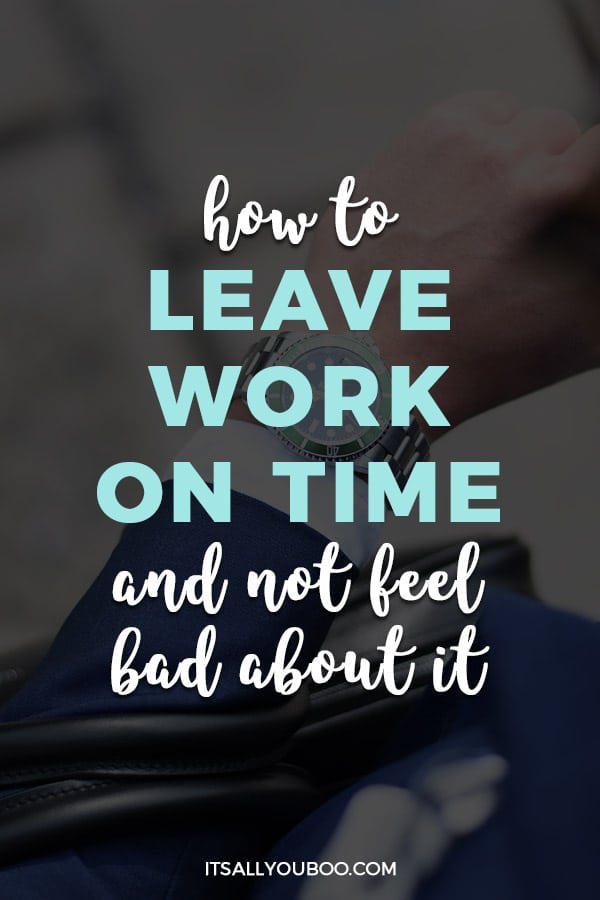
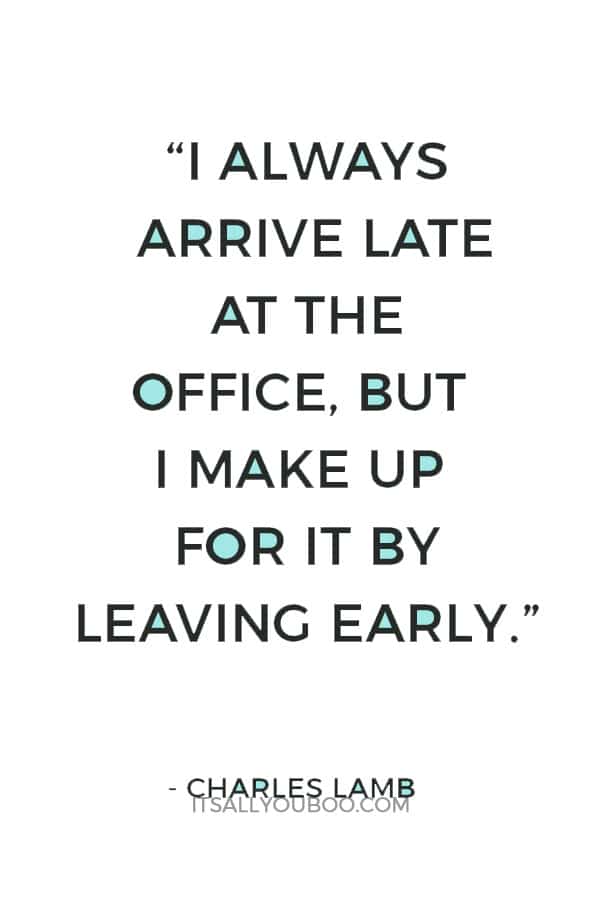

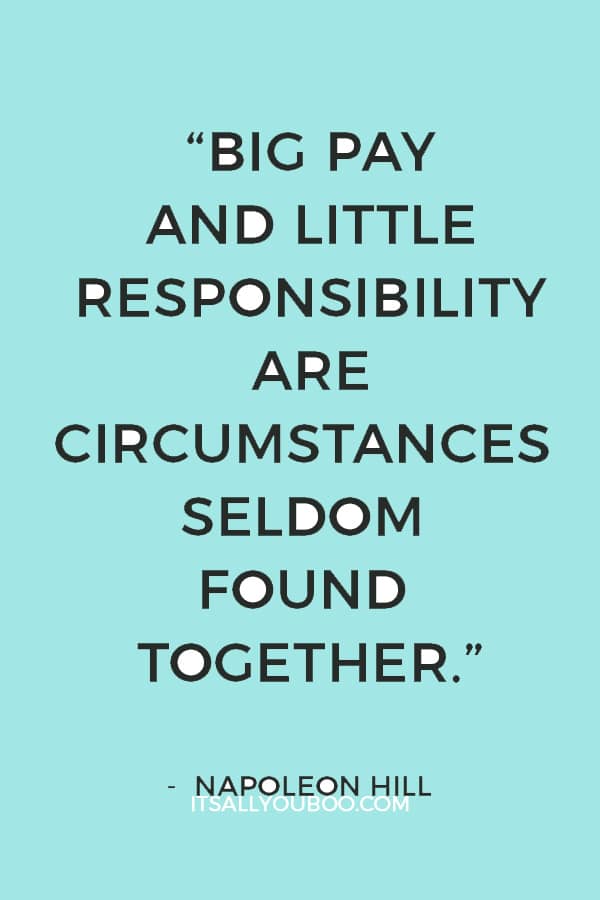



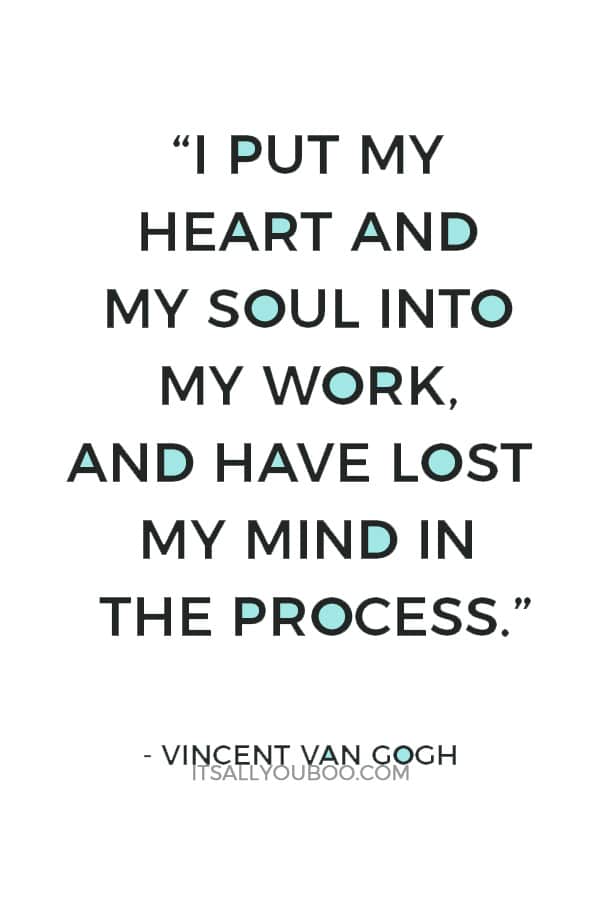
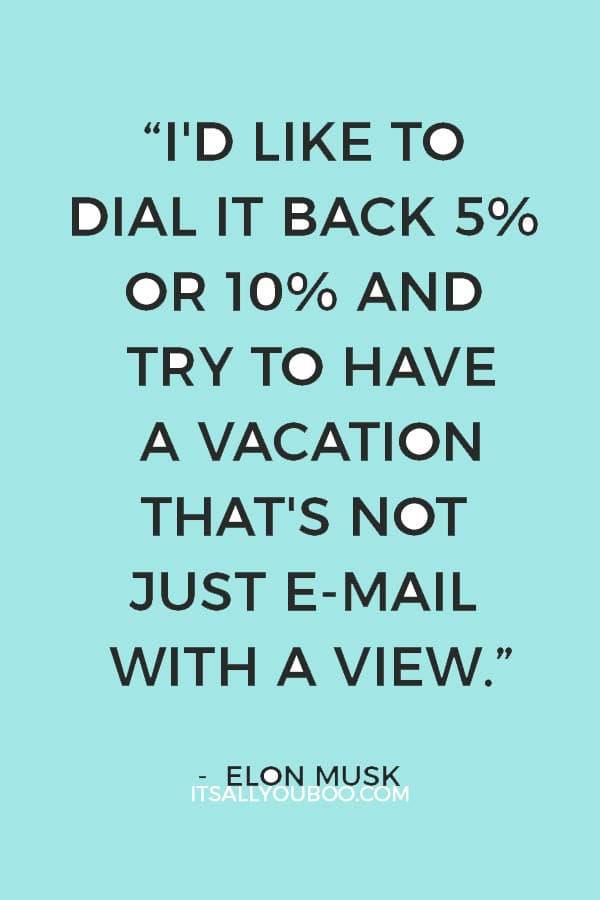




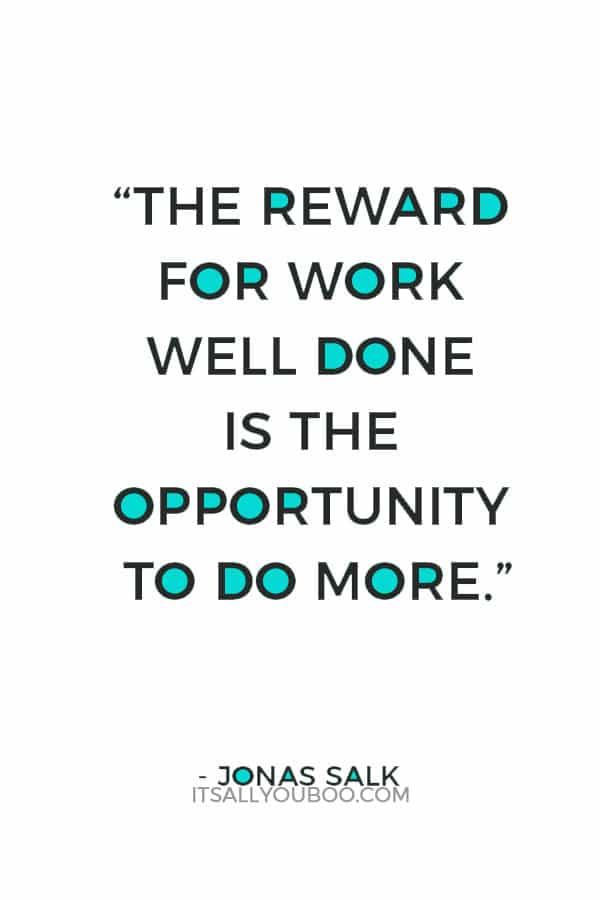





Mimi says
I definitely used to stay late than I had to, but what you say definitely makes sense so I’ll try to change my habit as soon as I go back
Vanessa says
Amazing! Yes, make this an intention. Even now, if you find yourself thinking about working later. There is no need to. You got this! Bookmark this article in your browser so you can refer to it later
Marta says
Even though he’s working from home, my husband still has an issue “leaving” work on time. I’m going to show him this post.
Vanessa Zamy says
Yes! Pass it on. He needs to prioritize his health and sanity. Some people stay later because they fear getting fired, but at the end of the day, him staying later than the next work does not guarantee he won’t be cut when the business. I’m sure there are millions of people who would consider themselves “hard workers” but a number is a number on an expense sheet
Kileen says
This is such a great post! I think so many people are guilt tripped into staying late which takes time away from family and friends. Thank you so much for sharing!
Kileen
Vanessa Zamy says
So glad you are finding value in it! I started a challenge with myself to provide complimentary 3-minute coaching tips every day for 365 days (currently on day 6 and luhvin’ it!). Feel free to check out my Facebook page: https://www.facebook.com/ZamyVanessa/
Patricia @ Grab a Plate says
This is a great post for me to come across! I have a colleague who stays late and “brags” about it (although he arrives late). Each chance w/ our leadership he talks about working over the weekend, etc., etc. I always hope no one on the conference calls can hear me rolling my eyes 🙂 Thanks for sharing this important info!!
Vanessa Zamy says
Lolz! Yes (insert applause) It’s likely he’s overcompensating for how miserable he is at the job. The way I see it, he has nothing better to do than to live out someone else’s dreams. And in that regard, I can’t help but feel sorry for him. At the end of the day, this colleague just like you is a number on the page. Hope he can one day see his worth.
Shayla Marie says
I need to apply this to my WAH job! I have so much trouble separating home and work since I live where I work.
Vanessa Zamy says
That can be difficult indeed especially when if you are using the same device. There’s a time and place for what you want to do. Choose a time when you want to have play time and choose a time for the working of the WAH time…then STICK to it and you’ll feel all the better. It can be difficult for us to set boundaries, but I know you can do it!
Bella says
I am never one to be late for work and one i did have a desk job I was always the person who went early!
Vanessa Zamy says
Awesomeness! And you probably did not even early. You only left at the time they were paying you for. (Insert standing ovation)
Surabhi says
That’s a much needed post. At the end we are working!
Vanessa Zamy says
Agreed Surabhi! And it’s time for us to decide to work hard to live out the dream of the person we see in the mirror.
Charlene says
Ugh I needed this. I work for myself from home so I have a habit of procrastinating throughout the day and working late into the evening. I need to be more strict with my work hours and I think that will help me stay on task too!
Vanessa Zamy says
Yes it will! And I think the beauty of WFH is that you have the benefit of setting your own hours. So set them, but as you also know you need to stick to them, and that can be the hardest part. You got this! And if it’s in the evening when you decide to work, then evening it shall be as long as it’s what you want to do
Madi Rowan says
Loved this post & definitely much needed right now! I’m totally guilty of not being able to shut work off…but I know how important it is now to not let it consume your day!
-Madi xo
Vanessa Zamy says
Since you read this post, how has shutting off been going for you? Would love to hear where you’re at?
Jen says
First, I love the quotes you have throughout this post! And I absolutely love hearing about your personal transformation that came as a result of deciding to leave work on time. It’s all about intentionality!
Vanessa Zamy says
Thank you Jen! “Focus Your Intention” is the first step I coach my clients through. We all have amazing ideas as solopreneurs. Although we can have it all, we can’t necessarily do it all.
Bumo Mgabe says
Thank you for the suggestion!! I really liked the point about making sure you know what is expected of you. Too often I just wanted to finish just to end up finishing a task a week too early.
Vanessa Zamy says
And the funny thing is by finishing a task early, you only freed up your time to do even more and then kept saying yes to your boss. I was there and setting expectations from the beginning tremendously helped…Would love to hear how this has been going for you
Alabi Victoria says
Thank you for this tips, I really appreciate them
Vanessa Zamy says
So glad to hear you found value in them! Feel free to reach out with questions at any time